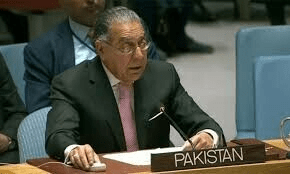
Wednesday, 28 March 2007, 12:06 C O N F I D E N T I A L SECTION 01 OF 05 NEW DELHI 001485 SIPDIS SIPDIS SCA FOR AMBASSADOR WILLIAM B. WOOD EO 12958 DECL: 03/28/2017 TAGS PREL, PGOV, EAID, ECON, ENRG, SCUL, SOCI, AF, IN SUBJECT: OPPORTUNITIES FOR INDIAN SOFT POWER IN AFGHANISTAN REF: A. NEW DELHI 1327 B. NEW DELHI 729 C. HOWARD-KESHAP E-MAIL 09MAR07 NEW DELHI 00001485 001.2 OF 005 Classified By: PolCouns Ted Osius for Reasons 1.4 (B,D)
1. (C) SUMMARY: As requested, this cable contains specific, concrete ideas for opportunities for India to use soft power in helping Afghanistan's reconstruction, with the broader objective of seeking ways for the U.S. to synergize its efforts with Afghanistan's "natural ally." Some of the ideas are new, many are not, but the intent is to develop a brief reference for the opportunities which are available. India has significant aid to offer, including affordable Indian professionals (versus more expensive Westerners), energy production, and training capabilities in areas such as law enforcement, election commission training, foreign service training, and administrative services, much of which can be relatively cheaply accomplished in India.
2. (C) Trilateral cooperation on infrastructure and capacity building projects among the U.S., Japan and India could also bring economies of scale and/or effective divisions of labor. Transit through Pakistan would greatly enhance India's ability to contribute to Afghan reconstruction. We would also have to overcome Pakistani objection to Indian force protection if India is to expand its role. The recommendations contained herein come with the caveat that Post has only an outsider's view of Afghanistan, and realizes that Embassy Kabul and Washington (not to mention the government of Afghanistan) are best placed to identify Afghanistan's needs. END SUMMARY.
Background: A Natural Ally, Already Giving Generously
------
3. (C) Indian experts on Afghanistan, such as XXXXXXXXXXXX believe India is well-regarded and liked in Afghanistan, and calls India a "natural ally" to the Afghan people. India and Afghanistan are considered to be close, and share good relations. There are no diplomatic issues between the two countries, nor is there any significant political or popular opposition in India to aid to Afghanistan. As Afghanistan transitions to a better future, diverse, democratic, multi-ethnic India can serve as a giant role model. India is already a major donor to Afghan reconstruction, with around $750 million pledged -- making it, we believe, the fifth largest donor country -- and is already involved in projects in a wide range of sectors, including electricity, road construction, and telecommunications, and has even in the past contributed as it could to agriculture and health. Indian aid to Afghanistan is tempered by what New Delhi perceives as Pakistani intransigence, which questions India's motives and does not allow for much cheaper overland transit of goods, personnel or equipment.
NEW DELHI 00001485 002.2 OF 005
WHAT INDIA CAN OFFER
------
Affordable Professionals
------
4. (C) XXXXXXXXXXXX when asked to highlight India's contribution, immediately answered that the best bang for the buck comes from India's professionals, specifically engineers. India's relatively low-paid engineers are more cost-efficient employees than those from Western countries, XXXXXXXXXXXX maintains. Without having specific figures on hand, XXXXXXXXXXXX estimated that Afghanistan could hire many times the number of India engineers to live and work in the country for the same price as one European. Indian engineers are currently engaged in power construction, public works projects, telecommunications infrastructure, and road construction.
Affordable Training
------
5. (C) The GOI is already bringing Afghans to India for training in various fields much more cheaply than what most other countries can offer. From 2002-2006, more than 1300 Afghans were trained in various Indian institutions and universities, and since March 2006, India has offered short-term training courses for 500 Afghans annually. In addition, 500 Afghan students annually will be offered graduate and post-graduate education in India. XXXXXXXXXXXX believes that by bringing Afghans to India for training, Afghanistan is able to train five-to-six times as many people as would otherwise be possible. Training programs exist in law enforcement, diplomacy (at India's Foreign Service Institute), urban development, English, agriculture development, IT, civil administration parliamentary procedures and other capacity building areas. We believe India would welcome ideas for other areas that would match Afghanistan's needs. Given India's experience in running elections for a billion people, one new area to consider would be training, either in India or Afghanistan, for Afghanistan's central/local election commissions and election officials. Another new area where India would seem to match up well would be training for parliamentary procedures and support, political party organization, and local administration. If needed again, India could likely revive past training programs for Afghans in justice, journalism, civil aviation, or the small programs on marketing and enterprise development for women and in-service teacher training.
Administrative Service
------
6. (C) India is already in the process of sending some
NEW DELHI 00001485 003.2 OF 005
thirty Indian Administrative Service officers to Afghanistan (ref a). As other ministries and government offices are identified as needing outside expertise, India could be asked to increase these numbers and administrative programs could be specifically targeted to receive specialized training.
Affordable Energy
-----
7. (C) The India-led Pul-e-Khumri to Kabul power transmission line is running ahead of schedule and on budget, and should provide significant energy to Afghanistan. India is contributing to further energy production with the Salma Dam project in Herat province, and has some smaller projects ongoing, including in solar energy production. India has expertise in power generation through mountainous and difficult terrain, and could be called on for additional assistance in this area. Indian firms are also global leaders in wind power. The best incentive for full-scale Indian assistance, not to mention private sector investment, would be a political agreement which would allow power lines to transit Pakistan, connecting India all the way through to Central Asia.
People-to-People
------
8. (C) India was proud to provide food aid (in the form of high protein biscuits) during the 2002 "Back to School" campaign, as well as humanitarian assistance in earthquake relief in 2002. Should such a need arise again, India should be one of the first countries Afghanistan turns to. People-to-people exchanges are also popular in India with several NGOs promoting youth and cultural exchanges with counterparts in Pakistan and the U.S. If and when appropriate, India should be encouraged to develop exchange programs with symbolic significance, such as inviting the Afghan national women's soccer team, or kids from the Afghan Youth Sports Exchange (maximum exposure if they have anyone willing to come to play cricket). As is being done in another exchange program here, young Afghans could be invited to visit top Indian (or locally-based American?) corporations in the field of their interest to take on short internships. Numerous other possibilities exist, but one other area that seems ripe is Bollywood. We understand Bollywood movies are wildly popular in Afghanistan, so willing Indian celebrities could be asked to travel to Afghanistan to help bring attention to social issues there.
Straight Donations
------
9. (C) In addition to humanitarian and medical supplies provided in 2002, India has provided direct donations of materiel to Afghanistan, and could likely fill specific requests in the future. Our research indicates that India
NEW DELHI 00001485 004.2 OF 005
has given buses, minibuses, utility vehicles, aircraft, education kits, books, school desks, laboratory equipment, musical instruments, computers and sports supplies.
Multi-lateral Partnerships
------
10. (C) The 21st Century Leadership Alliance can provide the basis for greater cooperation between the U.S., India and Japan in promoting democracy and good governance in Afghanistan. The recent inception of the joint U.S.-Japan-India project to develop the Public Administration program at Kabul University could serve as a model for similar cooperation in other fields, such as agriculture, veterinary science, English or other foreign language development, or even faculty development. In addition to three-way collaboration, XXXXXXXXXXXX pointed out that, even when the U.S., India and Japan are not working together, they could coordinate better on divisions of labor which could more effectively target donor money and efforts, and take advantage of each country's area of expertise. Additionally, we could explore ways to use the U.S.-Japan Strategic Development Alliance to approach India on other coordinated trilateral projects.
IMPEDIMENTS TO INDIA'S CONTRIBUTION
------
Pakistan Withholds Transit Access
------
11. (C) According to XXXXXXXXXXXX and other Embassy contacts, transit through Pakistan is imperative for the economic integration of the region, and would be mutually beneficial for Pakistan, Afghanistan and India. However, India's perception is that Pakistan is creating obstacles that prevent such a land route from becoming a reality, and Afghan Embassy officials have indicated that they are pessimistic that the Government of Pakistan (GOP) will budge on this issue (ref b). We should use every opportunity to continue to press the GOP to allow this essential transit route. This issue will be on the agenda at the upcoming South Asia Association for Regional Cooperation (SAARC) meeting April 3-4, and XXXXXXXXXXXX, who told PolCouns March 12 that obtaining a transit route from Afghanistan through Pakistan to India was the "only benefit of Afghanistan's membership in SAARC," and that SAARC would be a disappointment if it didn't advance the transit issue. (COMMENT: Transit across Pakistan would also reduce India's reliance on Iran. END COMMENT.)
The Security Issue
------
12. (C) Security continues to be an issue of public concern in sending Indians to work in Afghanistan. Since 2003, two Indian engineers have been abducted, and three other workers
NEW DELHI 00001485 005.2 OF 005
have been executed in Afghanistan. The Indian media says Indians who work specifically on road-building projects in Afghanistan are targeted due to Pakistani and Taliban fears that completion of a highway to Central Asia will increase India's influence in the region, thereby threatening Pakistan's interests in the region. Pakistan is also said to be opposed to India assuming a larger security role in Afghanistan. As Sudha Ramachandran said in a recent article, given Pakistan's sensitivities, India is not able to provide its own security for Indians working in Afghanistan. India will need to work out, with those suspicious of its motives, a way to protect its people on the ground, or it will not achieve its full potential in using soft power in Afghanistan.
13. (U) As an outsider looking in, Post realizes that Embassy Kabul and Washington (as well as the government of Afghanistan) are best placed to identify Afghanistan's needs. MULFORD













































Dear visitor, the comments section is undergoing an overhaul and will return soon.